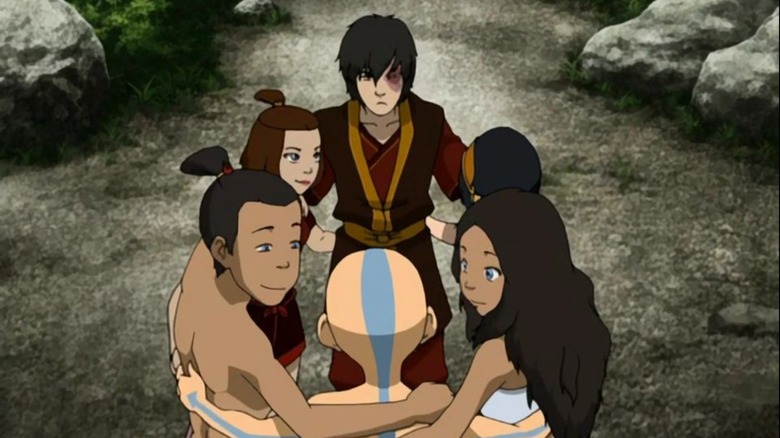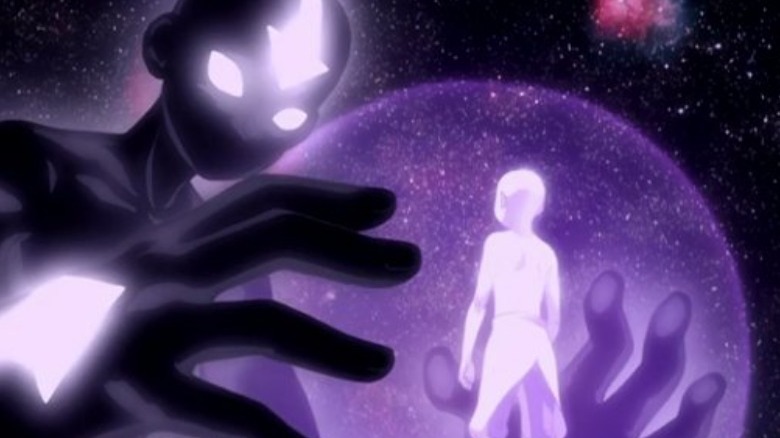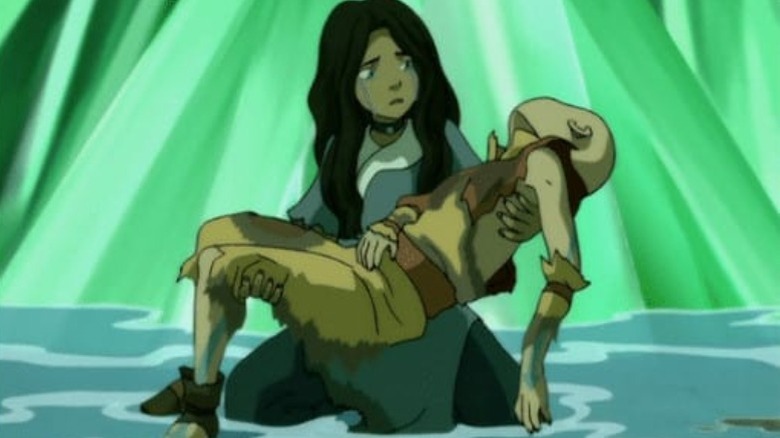Why Avatar: The Last Airbender Laid Off All Its Writers After Season 2 – But Ultimately Brought Them Back [Exclusive]
"Avatar: The Last Airbender" is one of the best animated shows of all time. When I said this back in 2008, it may have been a statement that my middle school peers pretty much universally agreed on, but it wasn't exactly a mainstream notion among grown-up tastemakers. But in the years since the kids' show has gone off the air, praise for its mature and empathetic worldview, unique mythology, and delightful animation and voice cast has only continued to grow exponentially. By the time the series hit streaming in 2020, it felt like "Avatar: The Last Airbender" was becoming the phenomenon it was always meant to be, and it was no surprise when news of a whole host of new projects from Avatar Studios soon followed.
For a fan who grew up alongside Aang, Zuko, Sokka, Katara, and Toph, it's easy to forget that the series wasn't always a part of the zeitgeist outside of a certain demographic. Apparently, the show even had some behind-the-scenes woes that audiences weren't aware of at the time of its release. According to head writer Aaron Ehasz, who spoke with /Film's Rafael Motamayor for the column My Most Ridiculous Note, the fate of "Avatar: The Last Airbender" was totally up in the air after its second season ended.
A great season doesn't equal an instant renewal
"They did not pick it up after season 2," Ehasz shared. "The ratings were not strong enough!" The series' second season, titled "Book 2: Earth," follows Aang (Zach Tyler Eisen) and his allies as they train to face off against Fire Lord Ozai (Mark Hamill). Along the way, they discover a brainwashed city, learn about an eclipse that can help them beat the Fire Nation, and lose and find their beloved pet flying bison, Appa. The season finale ends with several riveting cliffhangers, as Aang is wounded by lightning while in the Avatar state and the banished Prince Zuko (Dante Basco) decides to return to his homeland.
Apparently, none of that was enough to make Nickelodeon give the show a timely renewal, despite the fact that my 12-year-old self would have been thrown into near-endless despair if the story had ended there. "They did not pick it up," Ehasz emphasized. "We laid off all the writers after season 2. Everybody was sent home for three or four months." The show wouldn't return for its third and final season until nine months after the finale, which it ultimately got after Nickelodeon exec Eric Coleman reportedly campaigned for the show to continue.
The show was 'default canceled'
But even after the third season was a done deal, the "Last Airbender" creative team couldn't fully reassemble right away. "There was a rolling hiatus through all of season 3, where all the storyboard artists had to take a couple months off, all the designers had to take a couple months off," Ehasz explained. "Everyone did, because we had to catch up again on the scripts." Even with what sounds like a skeleton crew, the show was able to wrap up with a 21-episode final season, but its ratings apparently almost weren't enough to justify that conclusion.
"'Avatar' was essentially default canceled between season 2 and season 3. People do not know that," Ehasz revealed. "So there was always love, but there was not always obvious success and ratings for 'Avatar.'" When the world needed it most, the show almost vanished, but like Aang, it was eventually revived to save the day — with an excellent final chapter.


